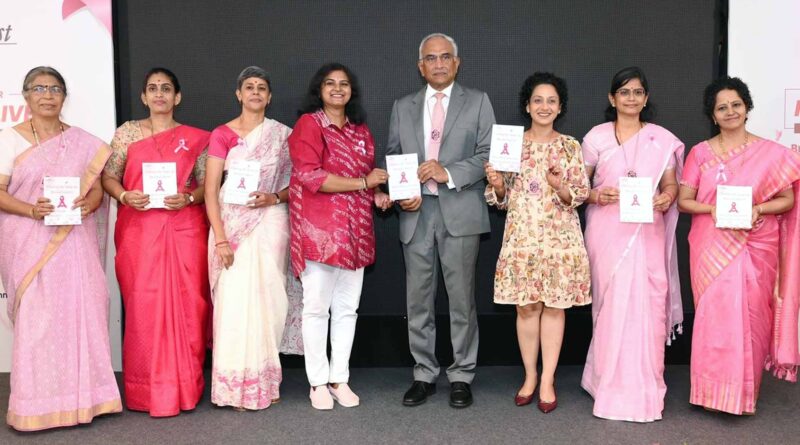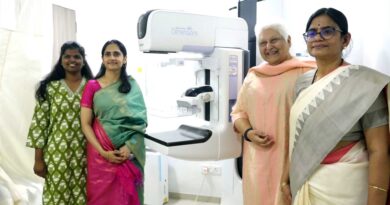Why Indian Women Aren’t Offered Reconstruction—And How That’s Changing
Chennai: In a powerful celebration of resilience and hope, the Chennai Breast Centre hosted “Beyond Breast Cancer: Rebuilding Lives,” a special event marking World Breast Reconstruction Day 2025. The gathering brought together over 100 breast cancer survivors from across Tamil Nadu, most of whom had undergone breast reconstruction, to raise awareness about the importance of reconstruction in recovery.
The event featured moving testimonials from survivors who shared their personal journeys, alongside video presentations on breast cancer and reconstruction. Dr. Venkat Ramakrishnan, Senior Consultant, Plastic & Reconstructive Surgeon, and Dr. Selvi Radhakrishna, Senior Consultant Oncoplastic Breast Surgeon at Chennai Breast Centre, led the discussions and emphasized the need for integrated care.
Breast reconstruction is a surgical procedure that restores the shape of the breast following a mastectomy, using either implants or the patient’s own tissue from areas such as the abdomen, back, or thighs. BRA Day, observed annually on October 15, aims to educate patients and healthcare providers about the options, benefits, and emotional impact of reconstruction.
Breast cancer remains the most commonly diagnosed cancer among women in India, accounting for nearly 30% of all female cancers. In 2022 alone, 192,020 new cases were reported. Alarmingly, over 60% of these cases are detected at Stage 3 or 4, when mastectomy is often necessary. Despite this, breast reconstruction remains rare in India, with only about 1% of women undergoing the procedure—often due to cultural perceptions or financial constraints. In contrast, over 65% of women in Europe opt for reconstruction.
The urgency for awareness is heightened by the fact that breast cancer in India tends to strike women in their 40s and 50s, a decade earlier than in the West. The loss of a breast can deeply affect a woman’s self-image and confidence, and reconstruction offers a path to emotional healing and restored dignity.
Dr. Selvi Radhakrishna highlighted the importance of early detection and comprehensive care. “Improved medical facilities and accurate imaging have made earlier detection possible, allowing many women to survive longer and lead productive lives,” she said. “In the West, women recommended mastectomy are routinely offered immediate reconstruction, but in India, this is often omitted. As a result, many survivors live with disfigurement, psychological distress, and loss of confidence—highlighting the urgent need to integrate reconstruction into cancer care.”
Dr. Venkat Ramakrishnan emphasized the safety and effectiveness of modern techniques. “Breast reconstruction techniques have advanced tremendously. Microsurgical reconstruction, performed at the same time as breast removal using the patient’s own tissue—often tummy fat—adds only about two hours to surgery and has a success rate of over 99% when done by experienced surgeons,” he explained. “It is extremely safe and provides a natural breast that ages with the patient. In some cases, mastectomy and breast reconstruction can also reduce the need for post-surgery radiotherapy. Using abdominal tissue also removes excess fat, which can benefit overall health.”
The path forward, experts say, lies in integrating breast reconstruction with cancer treatment. This includes training more skilled professionals, recognizing reconstruction as a medical necessity for insurance coverage, and establishing one-stop centres that offer diagnosis, surgery, reconstruction, and rehabilitation under one roof. Such efforts could make comprehensive breast cancer care more accessible and affordable for women across India.




